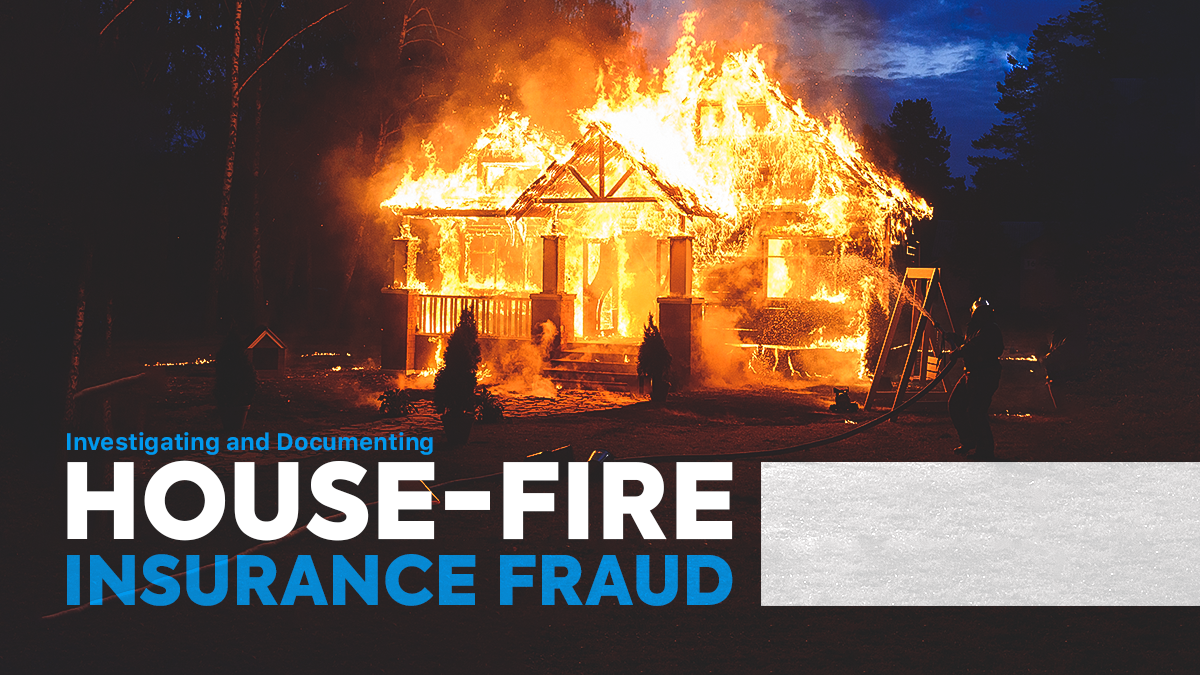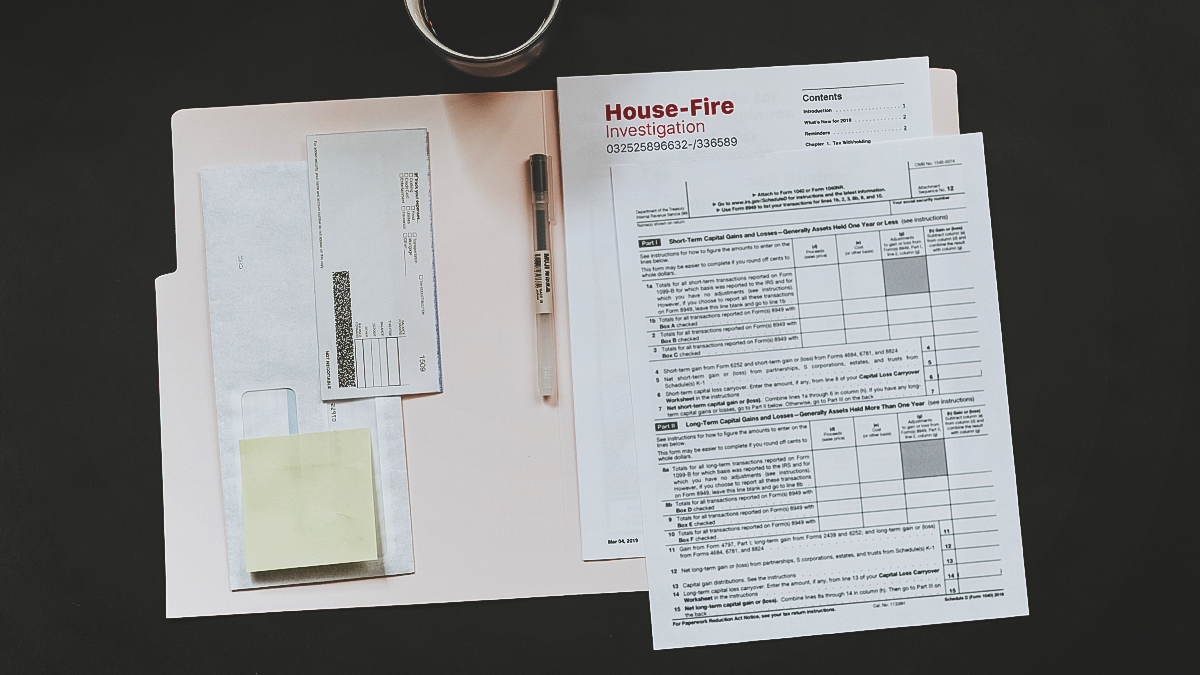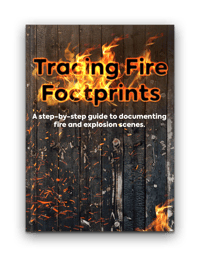Claims Adjuster
Investigating and Documenting House-Fire Insurance Fraud

Property fraud is an unfortunate reality in the insurance industry, and it comes in many forms, including house-fire fraud. Most insurance customers are honest and do not set fires intentionally. But some may actually set fires on purpose to achieve financial gain. As a result, insurance adjusters get involved with investigating and documenting house-fire claims. In this blog post, we cover how house-fire fraud occurs, why investigation is necessary, what fraud detection entails, the importance of proper fraud documentation, and a tool that improves how documentation is done.
How House-Fire Fraud Occurs
Fraud overall is defined as wrongful deception for personal gain.
House-fire insurance fraud, in particular, can occur in different forms, including arson, exaggeration of damage, and false claims. Arson is a deliberate act of setting a property on fire. Exaggeration of damage occurs when the claimant inflates the extent of the fire damage to receive a higher payout. False claims involve misrepresenting the cause of the fire or the value of the loss.
Motives Behind This Type of Fraud
One common motive for fraud is financial distress accompanied by a feeling of desperation. Deliberate house fires are usually committed by homeowners who are in difficult financial positions and seek to collect insurance money. They may be dealing with high personal debt, facing possible bankruptcy, or panicking under threat of a near-term foreclosure.
Fraud may be especially enticing to those who owe more on their mortgages than what their homes are worth. The ultimate goal of these individuals is to simply be relieved of the financial responsibility of the property for which they had agreed to pay. If that responsibility is viewed as an overwhelming burden, then arson may be chosen as a convenient “way out” with the hope of collecting insurance money.
That is, without doubt, a disastrous decision. Whenever house-fire insurance fraud does occur, it is considered a serious offense. In fact, insurance fraud in general is classified as a crime in all 50 states and Washington D.C.
NOTE: Not all deliberate house fires are related to insurance fraud. Some individuals may commit arson for other reasons, such as destroying evidence to hide another crime or acting out on revenge against an estranged spouse.
Why an Investigation Is Necessary When a Fire Occurs
Insurance companies and law enforcement alike are interested in thoroughly investigating the true origin of house fires for these reasons: because fires can cause horrific loss of property and life, and can also boost the cost of homeowners insurance for all policyholders.
If insurance fraud is suspected as the motive behind a fire, the fraud must be proven with factual evidence. And the evidence can only be obtained with a proper investigation – especially since many perpetrators go to great lengths to mask their crimes. That is why most insurers have established special investigation units (SIUs) to help identify and investigate suspicious claims. These units often include law-enforcement experts who know how to deal with house fires and other routine fraud activity, as well as special claims adjusters who have extensive knowledge and training regarding insurance claims and fraud. All of these fraud investigation jobs are extremely important.

What Insurance Fraud Detection Entails
First and foremost, fraud detection involves visiting, inspecting, and evaluating the scene of a fire. Professionals who investigate house fires also speak with claimants, witnesses, and authorities to gather information and assess the situation.
Investigators must go through this whole process to determine the cause of the fire, the extent of the damage, and the value of the loss. This can be quite time-consuming. A proper investigation requires a great amount of effort and attention to detail to determine if the policy-holder’s claim is legitimate. The scene evaluation process is especially arduous if the destruction of physical evidence is extensive.
If a house fire appears to have been started intentionally, the police will open a criminal investigation. Also, the homeowner’s insurance company will conduct a separate but parallel claim investigation. That will involve digging for circumstantial evidence that relates to insurance fraud. This additional evidence may consist of phone and financial records, questionable social-media posts, the policyholder’s claim history, substantiation of life circumstances surrounding the policyholder, and the behavior of that individual before the fire occurred.
Why Documentation Is So Crucial
If a house fire is ultimately deemed as a case of insurance fraud that will head to court, documentation of the scene must be meticulous to prove that the claimant’s intent was fraudulent. This means the documentation must be both accurate and thorough, to help unveil any shroud of uncertainty about what really happened.

How a Floor Plan App Can Improve the Documentation Process
Fighting house-fire insurance fraud with proper documentation is possible with the right tools. A high-quality floor plan app is an excellent tool that makes documentation and reporting easier, faster and more thorough. The best kind of floor plan app is a contractor app designed for professional field applications.
Any person investigating a house fire can leverage this technology to create a sketch of the scene, insert notations, attach photos, and even convert everything into a professional photo-report document. Then that document can be used to help prove whether or not the homeowner’s insurance claim is illegitimate.
Wrap-Up
House-fire insurance fraud is a serious problem that can have widespread and devastating effects. By thoroughly investigating claims and using proper documentation, adjusters and other investigators can help prevent fraud and protect the interests of honest policyholders. Additionally, by using a high-quality floor plan app as a helpful tool, they can make their investigation process more efficient and successful. This approach saves time and money while also increasing the likelihood of catching and prosecuting fraudulent claims.
Discover how magicplan can help you document a fire scene more quickly and more accurately by using our new photo report feature.
Related articles
featured
/Claims Adjuster
/Restoration
Top 10 Estimating Software Options for Restoration Contractors
Claims Adjuster
/Restoration
7 Strategies for Dealing with Insurance Adjuster Pushbacks on Estimates
Claims Adjuster
/Restoration
Xactimate® or Symbility? Estimating Software for Restoration Claims
Bernd Wolfram
Head of Product

